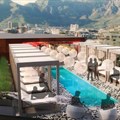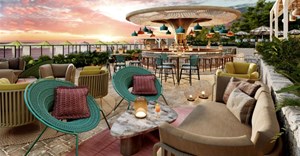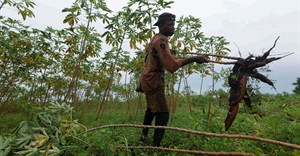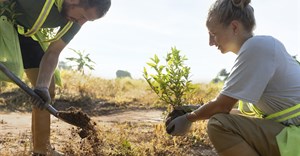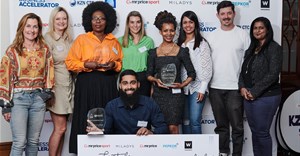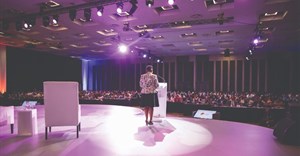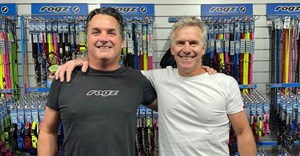
Subscribe & Follow
#WTMA17: Rezidor's Marc Descrozaille talks African expansion
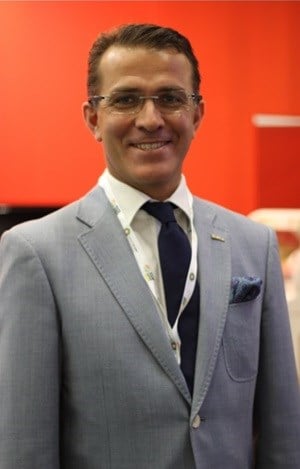
Tell us about Rezidor Hotel Group’s hotel brands and what we can expect from these brands in Africa in the coming years
What has been interesting for us, is that a few years ago, we actually started to operate here on the continent out of Cape Town. We opened the first hotel in the V&A Waterfront, or next to the Waterfront in Bantry Bay and we realised that the continent was going through this extraordinary development phase, aligning itself with the rest of the world from a hospitality point of view. We thought, that if we wanted to be present, we needed to be serious about it and really have good and influential people in the market that could develop and sign deals for new hotels. We realised that we could actually be everywhere on the continent and that we could benefit from these developments and all the infrastructure that was growing, making it easier for customers to travel.
When we did that 10 years ago, we signed many hotels and now we’re opening many more. In Africa, it typically takes five years from the moment you sign a deal and once you do, you have a new place the moment you open it. Year to date, we’ve opened three hotels in Africa with Park Inn in Nairobi Westland, which is a great, technologically designed hotel, being the most recent.
Our focus is also on Radisson Blu, which is our core brand. We typically enter the market with Radisson Blu and then with the Park Inn by Radisson. We’ve doubled in size over the last two years and we’re probably going to double in size again over the next two to three years as we have already reached 35 hotels today, with another 35 in the pipeline, so we’re really here to expand and grow, because we feel that this is a really good time for the continent.
Why introduce the new brands such as the Quorvus Collection and Radisson RED, into the hotel industry? What has led to the establishment of these new brands, how will these hotels benefit guests?
Quorvus is an interesting brand. We have two signed up, one in Lagos and one in Kampala. Our aim is to have them situated in capital cities or in very prominent touristic destinations like Mauritius and the Seychelles, for instance. What they cater to is the traveller that wants luxury, but at the same time, also wants an individual type of relationship with the employees and the hotel.
Our aim is to have a direct connection with the hotel beyond the brand, so the hotel needs to be something special and iconic – it’s either going to be a traditional hotel that has been there for a long time and is established in the market or it's going to be a very iconic building that can be dubbed one of the best.
The Radisson RED caters to the ageless millennials that are technologically aware and connected. We’re trying to break free of a few old-fashioned traditions when it comes to working with hotels and welcoming guests. In the Radisson RED, there is no reception, but guests are welcomed by an art gallery. If you haven’t checked in online already, for instance, or if you haven’t gotten your key online on your mobile device, you are welcome to go to the hotel lobby and visit the art gallery where you’ll find coaches and can meet with receptionists who will assist you, sort your reservation and check in via an IPad device.
What Radisson RED offers is a different way of doing leisure – no more standing in long ques, now you’re exposed to a more informal and much friendlier environment, which in many ways helps us connect on a broader scale today. We feel that there is a big appeal for this sort of approach in the market that people will be open to and love – they see what is new and what is trending and want to be a part of that. Radisson Red is set to open in Cape Town in September at the V&A Waterfront next to the Zeitz Museum of Contemporary Art Africa. We’re extremely excited.
Tell us about the localisation in all the elements of new hotels - leadership, food and drinks, décor and the use of local suppliers. What is the aim of localising all elements of the hotels?
We don’t want to have hotels where you could be anywhere in the world, where you would wake up in the morning in your room and ask yourself whether you’re in New York, Cape Town or in Singapore. We want our hotels to have a local element and feel to the design. We make it clear in the brief that we need to understand the culture – this can be from various aspects, such as artwork and fabric.
Typically, we’d look for something that would represent the country as best as possible. More importantly, it’s about the people.
Our business is a people’s business, that’s what we do. We are not in a factory where we’re dealing with machines, our business is about people serving people and we take a lot of pride in developing our people. Locally we have waiters that are at a more basic level to whom we offer opportunities for growth to become leaders in the business. We usually work with partners, universities or education systems, for example, to encourage these youngsters that there is a future for them in the hospitality industry.
So when they’re ready to travel, they’re more than equipped to enter the market on the African continent. We have a few great examples of young managers and regional directors and business leaders working for us in Africa, dealing with business in Africa, which is a big benefit to us as they would typically understand the culture faster, including some of the elements of the way in which we interact and do business.
How does Rezidor Hotel Group intend to drive growth with the expansion of its brands and hotels in Africa?
It’s a strategy that is two-fold. It’s geographical. So we need to ask ourselves which are the key markets for us to develop in. There are a few key cities and hubs that we refer to here, which include Johannesburg, Cape Town, Lagos, and Addis Ababa, where we can have a selected number of hotels and brands – maybe five, maybe 10 – at the moment we’re planning and developing our sixth hotel for the year in Cape Town, which will be ready by end of the year and we’re hoping that we can reach a limit of up to 10 or 15.
The second element of the strategy is with the brands. We have to ask ourselves which brand do we want and where. Not every brand is for every market. Some brands need to have a really good understanding of international travel and there needs to be a maturity in the market, like Nairobi for instance, or Cape Town and Johannesburg, where you can have the Quorvus Collection, as there is an appeal for this sort of luxury brand in the market. Also, Radisson RED which offers different types of ways to interact with a more technological offering. So this is not for every market, some of the markets are not all for Africa. What they want and need is a good five-star hotel that works on international standards, with a good level of service, big rooms, safe and secure and this is what is already present in the Radisson Blu.
The right way to do things is to consider the people. Sometimes we are pushed because there is an opportunity, so maybe we could answer a country with a Park Inn by Radisson. The problem with Park Inn is that it doesn’t have the same reputation, traction, and standing in the market, so it can be a bit more complicated at times to enter the market with a Park Inn, but it’s a mix of many other parameters, so typically, it could be right as well. The way we like to do it is to start with the Radisson Blu and then we can expand with the same brands in other cities.
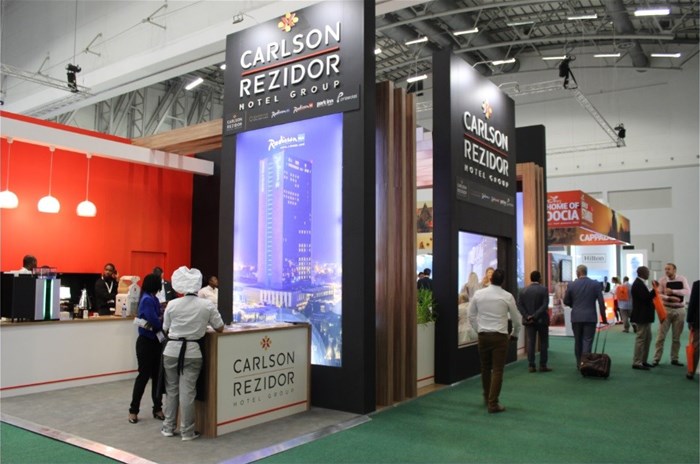
Rezidor’s hotel brands have become icons in South Africa’s hotel industry regarding the level of service, the architecture, comfort, etc. What are your aspirations for new hotels and how they are perceived on the continent?
We aim to become a place where big things happen in the county, big meetings linked to the government, to business people, having the right gathering in our places. From an architectural point of view, we have fantastic hotels, some of them have won awards because they’re so beautiful and modern. I think it’s very inspirational as well for the leaders of this country and all the people because we bring something new, something very global. We make some of the cities and some of these countries that we have set up the hotels in part of the world, as we are coming with something that is new to the country and very international.
What we are trying to do as well is to have a real local food offering – we want to introduce a local touch. We want travellers and guests to discover something local. So in all of our room service menu’s and restaurants, there is always a local touch and you’ll always find local specialities here. As food is important, people will typically meet in our restaurants, in our bars and that is a way to exchange, a way to do business and it needs to be relevant.
All the developments that we have in Africa all together are crucial to really be present and not just come as visitors but to be a part of the adventure.
Finally, what is it that the Rezidor group wanted to achieve by participating in WTM Africa 2017?
We want to be visible, we want to be present. We wanted to be well presented. We have quite a large presence now in South Africa and in Cape Town, in particular. As I said, at the end of the year, we’ll have six hotels which mean that we’re opening two hotels this year. We want to be able to meet with all the big partners that are in the hospitality industry and we want to contract with them, to deal with them.
This is what we’re doing everywhere else in the world, in Dubai, in Berlin and other places. All the developments that we have in Africa all together are crucial to really be present and not just come as visitors but to be a part of the adventure. So we see some traction, we see that it’s getting bigger and bigger each year, it’s fast becoming prominent on the international scene.






